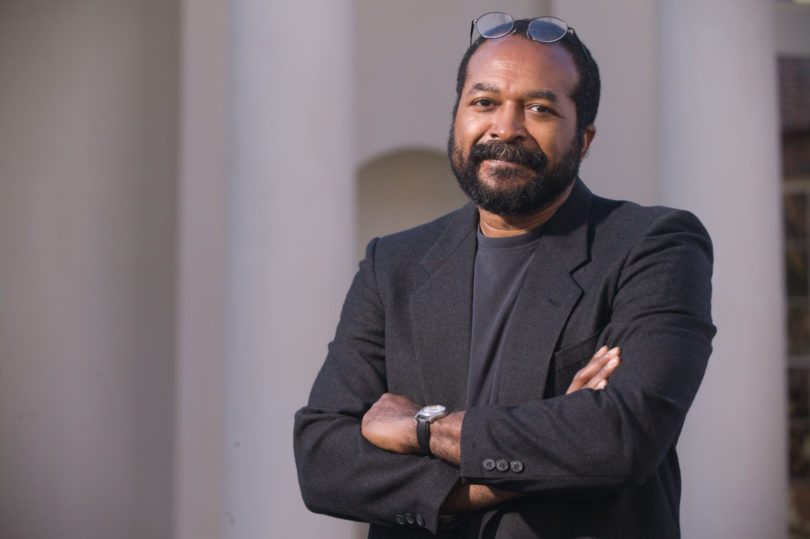Before he became the Hamilton Holmes Professor of English at UGA, Reginald McKnight remembers living on Barksdale Air Force Base in Bossier City, La.
His family’s house on First East Street straddled the line that separated the white and black airmen’s homes during the early days of U.S. military integration.
“My parents always chose to send us to schools that leaned toward integrated practices,” he said. “During the ’60s and even the ’70s there were a lot of segregated schools—schools that were de-facto segregated. But my folks thought that in the long run we would be better off learning how to live with people of other races because that would be our destiny some day.”
It’s fair to say, then, that integration has always been a way of life for McKnight.
His professorship is named in honor of Hamilton Holmes, one of the first two black students admitted to UGA. But McKnight doesn’t view the position as an obligation; he understands it better as a description.
“Of all the people I idolized when I was younger—Martin Luther King Jr., Malcolm X—Hamilton Holmes most fit with me. I can’t imagine any other chaired position in which the name of the chair is more appropriate or right for me. I don’t care whether it’s James Baldwin, W.E.B. DuBois or whatever the name is, Hamilton Holmes strikes a chord with me,” he said. “When I was first approached about this job, I felt that in many ways it was a culmination of all the things I had grown up believing as a kid. My parents were integrationists—you have to be if you’re in the military. It was the first large-scale integration experiment.”
As the son of an Air Force officer, McKnight moved around a lot as a kid. He and his siblings were often the de-facto integrationists of small schools in Texas, Louisiana, Alabama and Colorado.
His primary duties at UGA include teaching standard English and creative writing classes, but he finds time to offer special courses, like “White Writers, Black Characters,” that tackle racial issues head-on.
“I love teaching that course,” he said. “It’s kind of a controversial title and I know it is. People think I’m going to come in and rip the heads off all these writers, but really I just use these classes that are about race to talk about race and talk about writing. And it’s important for people to have real, substantive discussions.”
Those kinds of discussions, he said, tend to be more honest here.
“I find UGA students to be really articulate about racial matters, especially black and white stuff,” McKnight said. “I think it has to do with having lived in the South and its history that makes Southerners just more honest about race. It may sound like a cliché, but the thing I liked about living in Louisiana, Texas, Alabama as a kid, is that nobody lied to you about race. If they didn’t like you, they told you.”








